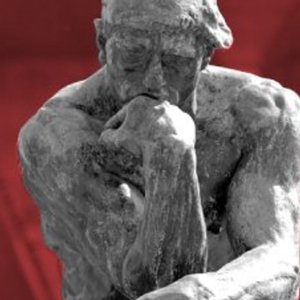A university education opens minds and opens doors, but for various reasons, it can be out of reach for many who would benefit.
Mary Lu Redden, the Executive Director of Halifax Humanities 101, shares with Hello Dartmouth readers how a free program focusing on the “Great Books” of Western culture can make a difference in people’s lives.
Tell us a little bit about Halifax Humanities 101.
MLR: Halifax Humanities 101 is a university-level, not-for-credit year of study in philosophy and literature which is offered, free of charge to adults living on low incomes. With a challenging curriculum, modeled on the famous Foundation Year Programme at the University of King’s College, we take students on an amazing intellectual tour of some of the greatest books ever written, beginning in Ancient Greece and Rome and ending with contemporary Canadian authors. Because the program is not for credit, there are no essays or exams. All classes are taught by university professors who volunteer their time.
Who is it meant to serve?
MLR: The program is geared towards adults living in HRM who have a hunger to learn, to read great books and to share that experience with others. The program is designed to have a safe and supportive learning environment for adults on low incomes who are willing to take on an intellectual challenge. Students must have a high school level reading ability but they do not need to have completed high school. Our students tend to be people living on some form of social assistance or disability pension, or who do minimum wage work or are living on limited retirement incomes.
Who is eligible to apply?
MLR: Any adult over the age of 17 who is living on a low income, has a strong reading ability and is willing to make a substantial commitment of time and energy to attend all classes and do the 5 – 10 hours of required reading each week. Students must be willing to engage with others and be respectful of differing opinions.
Where does the program happen?
MLR: On Tuesdays and Thursdays it happens at the North Branch Library in Halifax.
Our follow-up program for our graduates takes place on Wednesdays at Alderney Gate Library from 1:30 – 3:30
Why and when did the Dartmouth site open?
MLR: After the first year of the program, a group of graduates asked that we continue to offer classes for them. So since 2007 we have been running a once a week program we call “The Seminar” which explores books, authors and themes from the first year in greater depth. Since 2010, that program has met in Dartmouth, because Alderney Library offered us a consistent meeting space and also because many of our students come from Dartmouth and so the location was ideal for them.
Why do you think this an important program?
MLR: Many adults who are living on low incomes are bright and intelligent people who have faced very difficult life challenges of mental or physical health, substance abuse, spousal abuse, etc. On a low income, a person simply cannot afford the opportunities for intellectual enrichment and growth that university and college courses offer. So people in that situation often feel that the intellectual part of them is fading from lack of nurture. Halifax Humanities exist to help fill that gap and provide a safe and supportive intellectual home for people who love to learn but face barriers to formal education.
Do you have a success story you can share?
MLR: There are several. For instance, a woman joined our program 4 years ago. She was a single mother whose child had now grown up. This woman had the child in her final year of high school and because she was without family support, she left her rural community and headed off to the city. For years she worked at minimum wage jobs and eventually developed a serious repetitive strain injury that led to her going on disability. She had always hoped to go to university, but as a single mom, it just wasn’t possible. She told me that each September, she would feel such a longing to be going to school and learning again and it was always a difficult time of year for her. And then in September of 2010 someone handed her the brochure for our program and she joined us. She has been a wonderful part of our classes and is now doing university courses and feels so grateful that she has finally found the kind of learning she always longed to do, both with us and in the university courses she is taking.
How is the program funded?
MLR: We are funded through grants from various foundations, including the Harrison McCain Foundation, the McLean Foundation, the Halifax Assistance Fund and the Flemming Family Foundation. For 6 years we received United Way funding although that has now ended. We receive a generous grant from the President of SMU for books and we also have many generous individual donors. In addition, we have put on some very creative fundraisers, such as our marathon live reading of Homer’s Odyssey and our annual Literary Moot mock trial based on classic literature. We also have a social enterprise called HalifaxThinks! in which we offer our curriculum in an online format of lectures with twice monthly in person tutorials. The $400 fee we charge for each section of that program goes directly towards funding HH101.
Anything else you’d like to share?
MLR: Just that we are living proof of the value of Humanities education. For our students, the chance to read truly great literature and philosophical works and discuss ideas with gifted professors, is deeply meaningful and has proven to be life changing for some.
More information about Halifax Humanities 101 can be found here.




